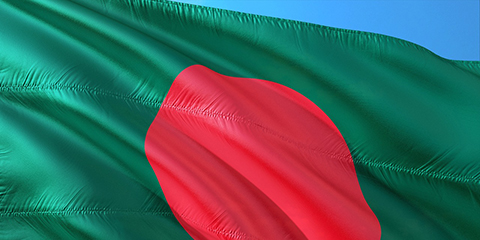The rise of digital newsrooms in Africa
JournalismPakistan.com | Published last year | Kofi Adebayo
Join our WhatsApp channel
NAIROBI—The media landscape in Africa is undergoing a seismic shift, driven by the rapid adoption of digital technology. Across the continent, traditional newsrooms are being replaced or supplemented by digital counterparts that are more agile, efficient, and far-reaching. This transformation is not just about adopting new tools; it's about redefining how journalism is practiced, how stories are told, and how information is disseminated to the public. Here's a closer look at how digital newsrooms are revolutionizing media in Africa.
The Rise of Digital Platforms
One of the most significant changes brought about by digital newsrooms is the rise of online platforms. In the past, print newspapers, radio, and television were the primary sources of news for most Africans. However, with the proliferation of smartphones and the internet, more people are consuming news online. Digital platforms allow news outlets to reach wider audiences, including those in remote areas who previously had limited access to information.
These platforms also offer a more interactive experience for users. Readers can now comment on articles, share content on social media, and participate in discussions. This interactivity not only increases engagement but also makes news consumption a more participatory experience.
Enhancing Speed and Efficiency
Digital newsrooms are revolutionizing the speed at which news is reported. Gone are the days when journalists had to wait for the next day's paper to break a story. With digital platforms, news can be published in real time, keeping audiences informed as events unfold. This immediacy is particularly crucial in times of crisis, where timely information can be a matter of life and death.
Moreover, digital tools streamline the news production process. Journalists can now gather, write, edit, and publish stories from a single device, reducing the time and resources needed to produce news. This efficiency allows newsrooms to cover more stories and provide more in-depth analysis.
Democratizing Content Creation
One of the most profound impacts of digital newsrooms is the democratization of content creation. In the traditional media model, a few large organizations controlled the flow of information. However, digital platforms have lowered the barriers to entry, allowing smaller, independent news outlets and even individual journalists to produce and distribute content.
This democratization has led to a more diverse media landscape in Africa. Voices that were previously marginalized or ignored are now being heard, and a broader range of stories is being told. This diversity enriches the media ecosystem and provides audiences with a more comprehensive understanding of the issues affecting their communities.
Adapting to New Business Models
While the shift to digital has opened up new opportunities, it has also posed challenges, particularly in terms of revenue generation. Traditional advertising models, which were the lifeblood of print and broadcast media, are not as effective in the digital realm. As a result, African newsrooms are experimenting with new business models to sustain their operations.
Some outlets are adopting subscription-based models, where readers pay for premium content. Others are exploring partnerships, crowdfunding, and native advertising as alternative revenue streams. While these models are still evolving, they represent a crucial step toward ensuring the financial viability of digital newsrooms in Africa.
Navigating Challenges
Despite the many benefits, the transition to digital newsrooms is not without challenges. In many parts of Africa, access to reliable internet remains a significant barrier. Additionally, the digital divide means that not everyone has the skills or resources to engage with online content. This can lead to a situation where only certain segments of the population are informed, exacerbating existing inequalities.
Furthermore, the rise of digital media has also led to concerns about the quality of journalism. The pressure to publish quickly can sometimes result in inaccuracies, and the spread of misinformation and fake news is a growing problem. African newsrooms must balance the need for speed with the need for accuracy and integrity.
The Future of African Journalism
As digital newsrooms continue to evolve, they are poised to play an increasingly important role in shaping the future of journalism in Africa. The ability to reach broader audiences, the democratization of content creation, and the potential for innovative business models offer exciting possibilities. However, to fully realize these benefits, African newsrooms must navigate the challenges posed by the digital age.
The transformation of media in Africa is still in its early stages, but the trend is clear: digital is the future. By embracing this change, African newsrooms can ensure they remain relevant and continue to serve their audiences in a rapidly changing world.
Digital newsrooms are not just a trend but a fundamental shift in how journalism is practiced in Africa. They offer the potential to make news more accessible, diverse, and immediate. As these newsrooms continue to grow and adapt, they will play a crucial role in the development of a more informed and connected African society.

























